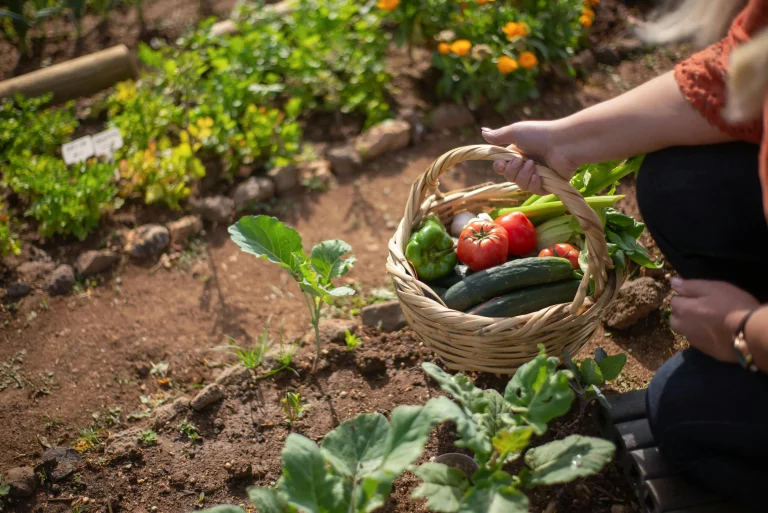🌾 Why Building Homesteading Skills Now Matters More Than Ever
Self-sufficiency skills are more important now than ever. If you’re dreaming of a life rooted in fresh air, purpose, and independence, you’re not alone. The vision of a thriving homestead filled with fresh vegetables, chickens clucking, and a pantry full of preserved food is powerful. But what if you don’t own land—yet? The truth is, building homesteading skills now will make your dream life not only possible but sustainable from day one

Even in an apartment or suburban backyard, you can practice foundational homesteading skills that will serve you for years. This guide covers the top 7 essential skills every aspiring homesteader should start building now—so when you finally settle on your dream plot of land, you’re more than ready.
🧠 The Power of Practicing Homesteading Skills Before You Homestead

H3: Learning Now, Living Better Later
- Make mistakes now—while it’s low stakes and low cost.
- Develop confidence in your abilities.
- Transform your mindset to self-reliance and resourcefulness.
H3: Build Resilience and Independence
- Homesteading skills equip you to rely less on modern conveniences.
- You’ll be more adaptable in uncertain times.
By strengthening your homesteading skills now, you’re investing in your future success and freedom.
🌱 1. Gardening – The Foundation of All Homesteading Skills
H3: Why Gardening Is the Core Homesteading Skill
When you grow your own food, you take control of your nutrition and budget. Starting a garden teaches you about soil health, pests, and how to work with the land.
H4: Gardening Skills You Can Practice Anywhere
- Start herbs or leafy greens in containers on your windowsill.
- Build raised beds in your backyard for tomatoes, carrots, and zucchini.
- Learn to compost kitchen scraps to create healthy soil.
- Study companion planting, seed saving, and organic pest control.
Self-sufficiency skills are more important now than ever…
🍅 Gardening Skills Timeline (Beginner’s Example)
- February–March: Start seeds indoors and track germination.
- April–May: Transplant seedlings outdoors, monitor spacing.
- June–August: Maintain watering and watch for pests.
- September–October: Harvest and save seeds for next year.
🫙 2. Food Preservation – A Core Homesteading Skill for Food Security
H3: Why Every Homesteader Needs Preservation Skills
Your harvests won’t last unless you know how to preserve them. Food preservation is one of the most vital homesteading skills to learn now.
H4: Methods to Practice Right Now
- Water-Bath Canning: Great for jams, pickles, salsa.
- Pressure Canning: Preserve beans, meats, soups.
- Freezing: Prepare chopped veggies or herbs.
- Fermenting: Sauerkraut, yogurt, kefir—all from your kitchen.
Gardening is more than a hobby—it’s one of the most practical self-sufficiency skills you can develop.
🍓 Example: How to Make Homemade Strawberry Jam

- Tools Needed: Canning jars, funnel, ladle, large pot, jar lifter.
- Ingredients: 4 cups strawberries, 2 tbsp lemon juice, 2 cups sugar.
- Steps:
- Mash berries and mix with lemon juice and sugar.
- Simmer for 15–20 minutes until thick.
- Pour into sterilized jars and water-bath can for 10 minutes.
Practicing food preservation reinforces your other homesteading skills like gardening, budgeting, and cooking from scratch.
✅ Recommended Resource: Learn Real Homesteading from Experts
If you’re serious about learning how to grow food, preserve harvests, raise small livestock, and become truly self-reliant—even on a small property or in your backyard—then The Self-Sufficient Backyard is the perfect next step.
Inside, you’ll discover:
How a couple grows their own food, raises animals, and lives off-grid on just a quarter-acre
DIY projects for gardening, solar power, composting toilets, and water collection
Detailed instructions on food preservation, including canning, drying, and fermenting
Tips to build small structures and manage land efficiently
Whether you own a home, rent, or are still planning your future homestead, this guide empowers you to start now and thrive later.
🐔 3. Livestock Care – A Hands-On Homesteading Skill You Can Start Small

H3: No Acreage? No Problem
Many homesteaders start with chickens or quail in a suburban backyard. The care of small livestock is one of the top practical homesteading skills you can learn.
H4: What to Learn Before You Have a Farm
- Build a coop or rabbit hutch.
- Learn about feed, rotation, and common illnesses.
- Understand the egg-laying cycle and seasonal needs.
- Attend workshops or volunteer with a local hobby farmer.
Practicing food preservation reinforces other self-sufficiency skills like gardening, budgeting, and cooking from scratch.
🔨 4. Basic Carpentry – The Homesteader’s Most Versatile Skill

H3: Build What You Need, When You Need It
With basic carpentry, you can create garden beds, compost bins, and animal shelters without calling a contractor.
H4: Skills You Can Start With
- Learn how to safely use tools: hammer, drill, circular saw.
- Build simple items like shelves, garden trellises, or cold frames.
- Repair broken furniture or fencing.
Learning to care for animals teaches resourcefulness and responsibility—core values of self-sufficiency skills.
🍞 5. Cooking from Scratch – Homesteading Skills Start in the Kitchen

H3: Why Cooking From Scratch Is So Important
You can’t rely on convenience food on a homestead. Cooking from scratch helps you use your garden produce and pantry items creatively.
H4: Skills to Try Now
- Make bread by hand (no machine)
- Prepare soup from preserved or dried ingredients
- Cook using what’s in season
- Use leftovers to reduce waste
Developing this homesteading skill supports your food preservation and budgeting efforts.
🧵 6. Sewing and Mending – Revive and Reuse

H3: Learn to Make Do and Mend
Fixing clothes instead of throwing them away is both practical and sustainable.
H4: Mending Skills to Practice
- Sew on buttons or fix torn seams
- Hem pants or skirts
- Make cloth napkins, garden aprons, or reusable produce bags
Mending clothes is one of those underrated self-sufficiency skills that saves money and builds independence.
🧰 7. Emergency Preparedness – Essential for Any Future Homesteader

H3: Self-Reliance Means Being Ready
Homesteaders need to be prepared for storms, power outages, and supply disruptions.
H4: Start With These Prepping Skills
- Build a first-aid kit with herbal and over-the-counter remedies
- Learn to cook off-grid (rocket stove, propane grill)
- Store water, rotate canned goods, and stock non-perishables
Emergency readiness is the ultimate homesteading skill—it gives peace of mind and keeps your family safe.
❓ Frequently Asked Questions About Homesteading Skills
Can I learn homesteading skills without owning land?
Absolutely! Many skills like cooking, canning, sewing, and gardening in containers are accessible no matter where you live.
What’s the most important homesteading skill to start with?
Gardening is often the best starting point. It teaches patience, observation, and respect for nature.
Do I need expensive tools to build homesteading skills?
No. Start with basic tools and add as you go. Focus on learning techniques and using what you have.
How long does it take to become “homestead ready”?
That depends on your dedication, but practicing a variety of homesteading skills regularly can make you confident within 6–12 months.
✅ Conclusion: Practice Homesteading Skills Now, Reap the Rewards Later
You don’t need land or livestock to start living the homesteading life. You can begin today—right where you are—by mastering these 7 essential homesteading skills. Whether it’s cooking from scratch, growing vegetables, or mending a shirt, every skill adds up to a more self-reliant, confident you.
Every step you take—whether baking bread or canning tomatoes—builds your toolkit of self-sufficiency skills for the future.
👉 Start building your self-sufficient life today with The Self-Sufficient Backyard — a practical guide to making your homestead dream a reality.
Your homestead starts today—with knowledge, intention, and action.

